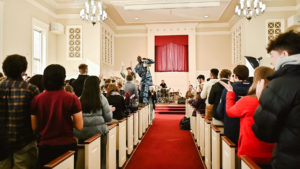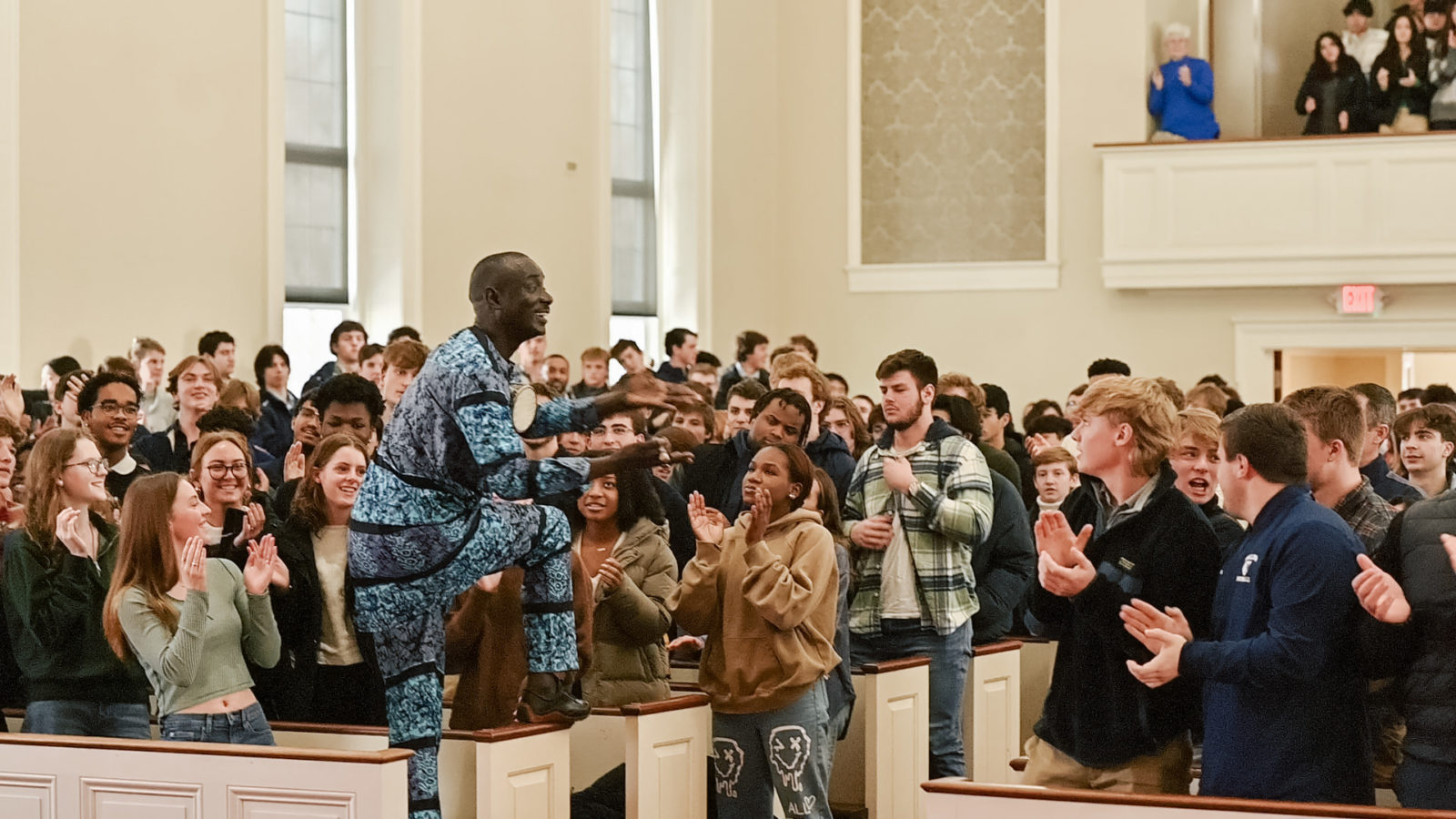For the Martin Luther King Jr. Day Assembly this year, the Williston Northampton School welcomed world-renowned musician Massamba Diop to the Phillips Stevens Chapel on Monday. Using his tama—or talking drum—Diop reached out to everyone in the crowd, at times quite literally, to give “good luck” and open their hearts.
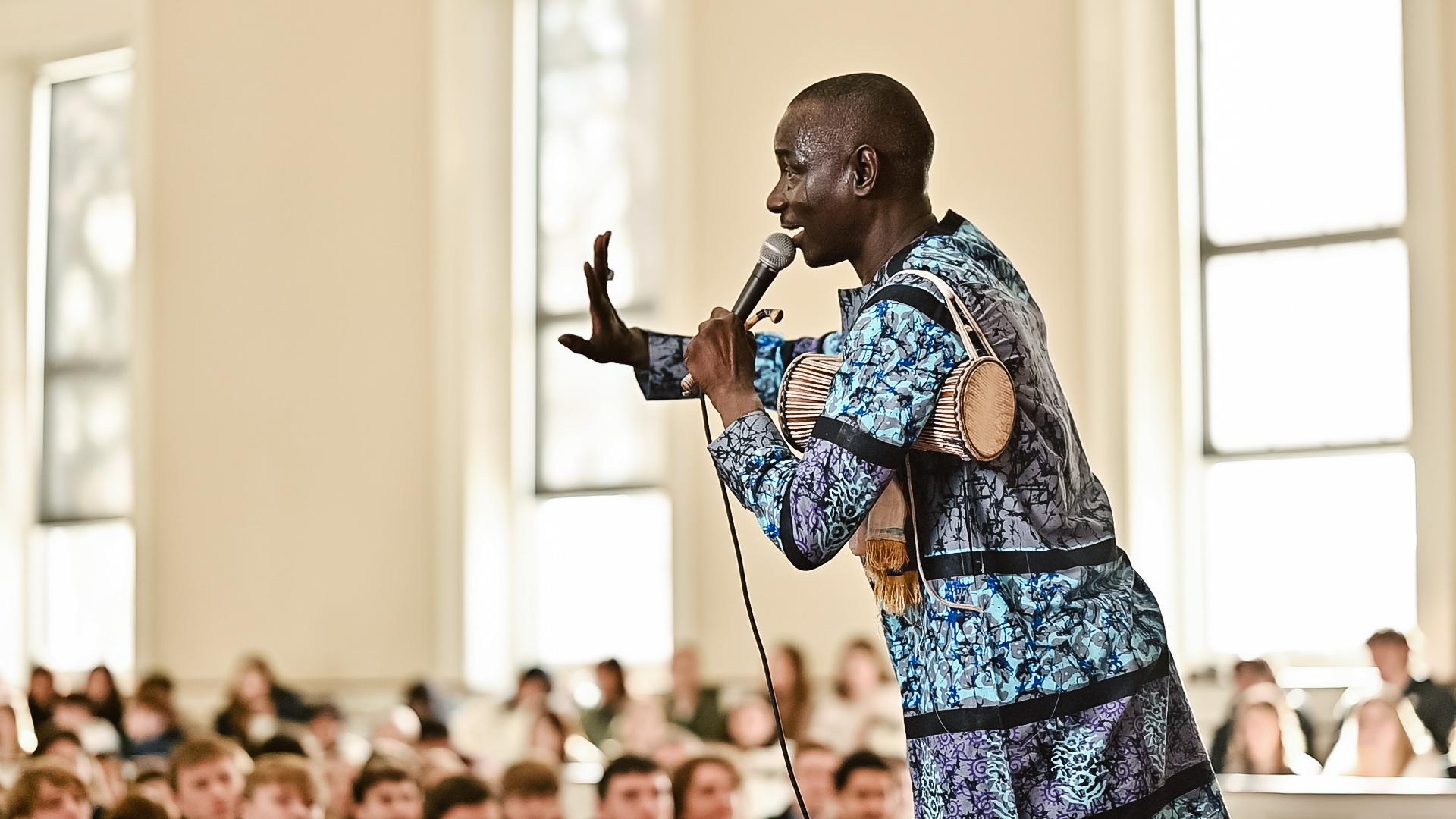
Diop, from Senegal, played to a captivated audience in the Chapel, harmonizing with friends and fellow musicians Tony Vacca and Derrik Jordan to show off his beloved tama. The instrument, small in stature but gigantic in terms of acoustics, is more than a musical tool for Diop. It holds a historic place in mass communication for Diop’s ancestors, and has allowed him to reach people across the world as an artist. When he played for students and faculty Monday, it was as much a look inside Diop’s soul as it was a musical performance.
“I told the kids today, they’ve never listened to the tama face-to-face,” Diop said. “Today, they listened, they watched me play it. I gave them good luck, gave them more pride—the heart is open.”
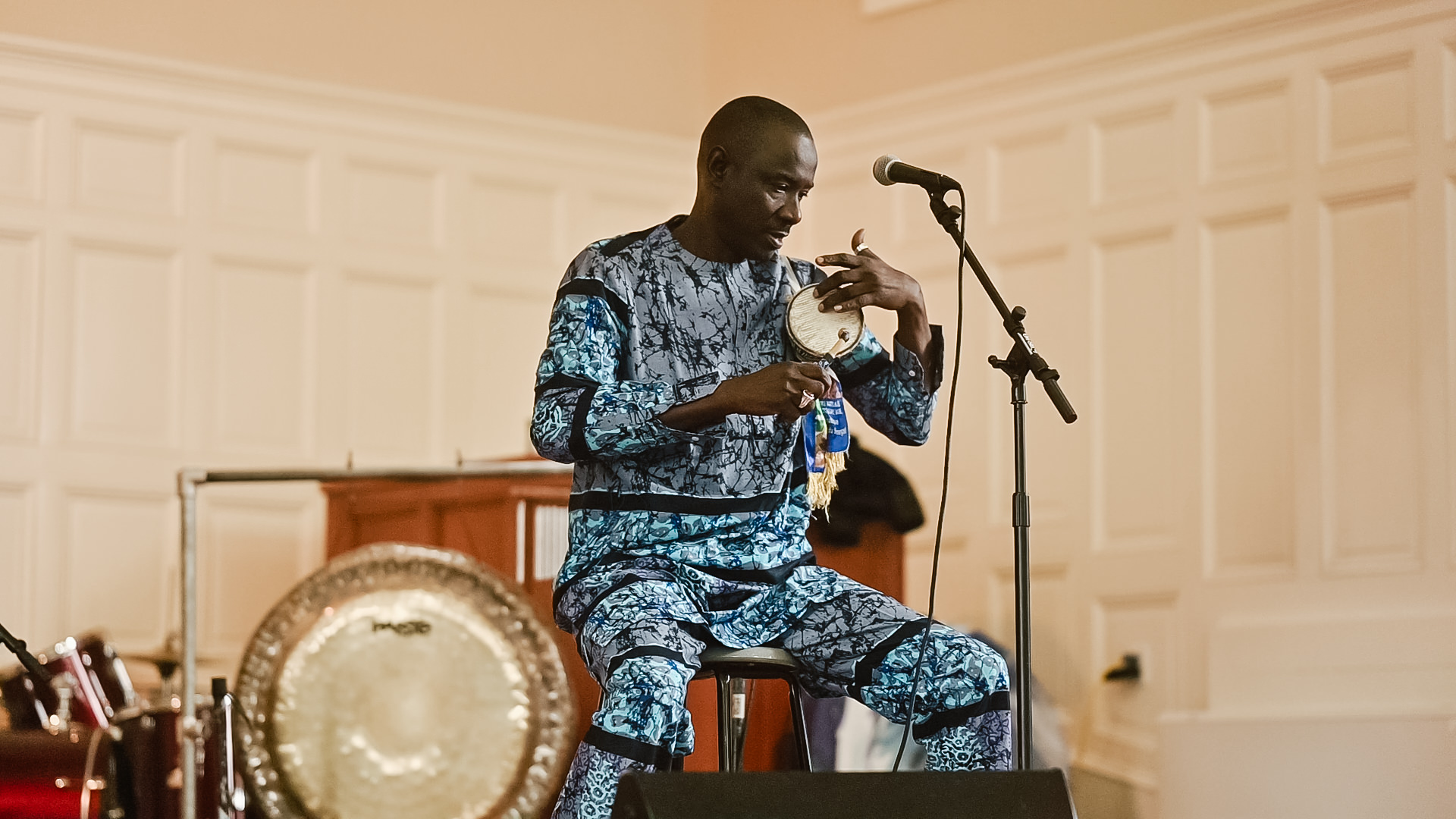
That connection is a testament to the tama’s sustained influence. For Diop’s ancestors, the tama was a means to communicate quickly—whether across a village, or between villages. For Diop, the tama brought him on a musical career as a band member for Senegalese superstar Baaba Maal that’s touched every corner of the earth. His tama playing serves a critical role in the music scores for both Black Panther and Black Panther: Wakanda Forever.
“You have to show [students] what the tama is from, what the tama can do,” Diop said. “That’s one of the first things I show the new generation now. When I play, I try to explain to them so they can understand where the tama is from…what possibilities you can do with the tama.”
Using a medium as unique as the tama to connect with the students put Diop in control throughout the assembly. Hopping up on the chapel’s pews, traversing the aisles and leading in call-and-repeats, Diop, his tama, and his bandmates brought a new sense of energy into the building.
“The energy was just palpable in that chapel,” said Nikki Chambers, the school’s Dean of Diversity, Equity, Inclusion, and Belonging. “People were engaged, people were really centering the joy in the music—that was really awesome to see.”
Chambers helped bring together the details on Diop coming to campus for MLK Day, but the seed was planted for this year’s assembly by a student. During a Black Student Union event that took students to see Black Panther: Wakanda Forever, Siga Pouye ’23 mentioned to the group that she knew someone who worked on the score—her godfather, Diop.
Pouye then got Diop’s contact information to Chambers, who eventually reached out and asked Diop to come to campus. Midway through the assembly Monday, Diop called Pouye up to the dais and shared a touching moment with her, explaining to everyone their relationship.
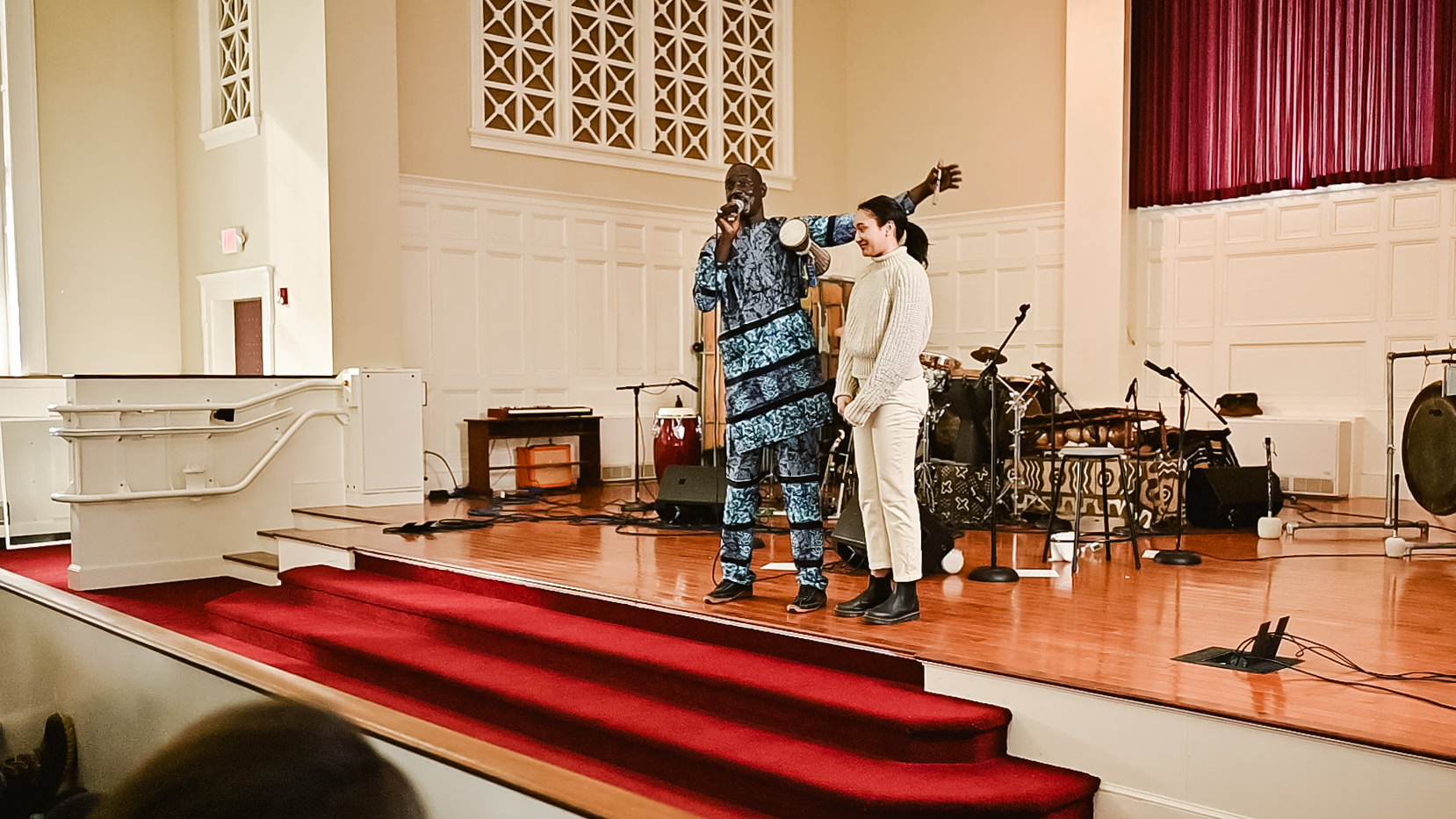
Chambers noted how special it was to act on Pouye’s suggestion for booking the MLK Day “speaker.”
“It’s a shining example of how powerful it can be to listen to students,” Chambers said. “For a student to have a cool idea and you take it seriously and see where it goes.”
The assembly wasn’t Diop’s only stop on campus, though. The day before he spent time with the BSU, and after Monday’s assembly he went around to several locations on campus. He spoke French to French students in the chapel’s basement, played more of his tama for middle schoolers, took in lunch and conversation at the Birch Dining Hall, then spoke to AP Music Theory students.
“It was really nice not to just have that big performance,” Chambers said. “He got to foster some really cool student connections on a one-on-one basis.”
View photos from the MLK Day assembly here, and watch a video of Diop’s performance on YouTube.
